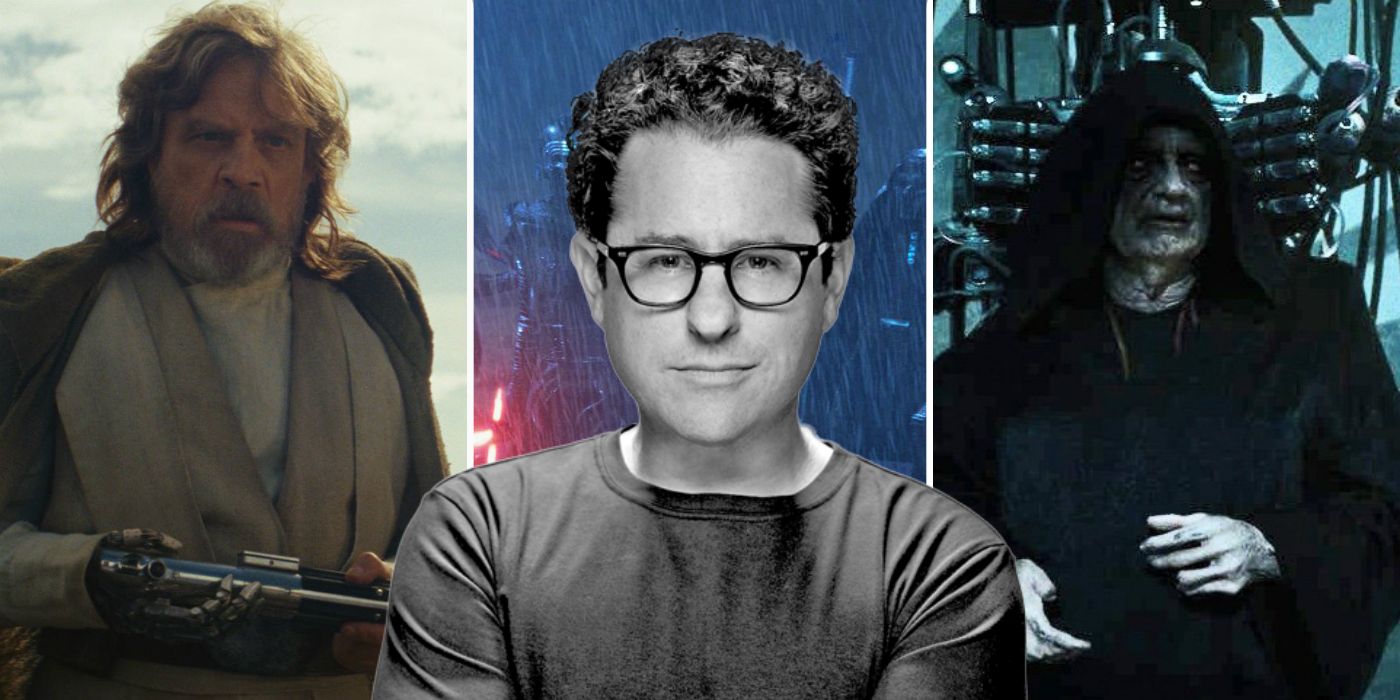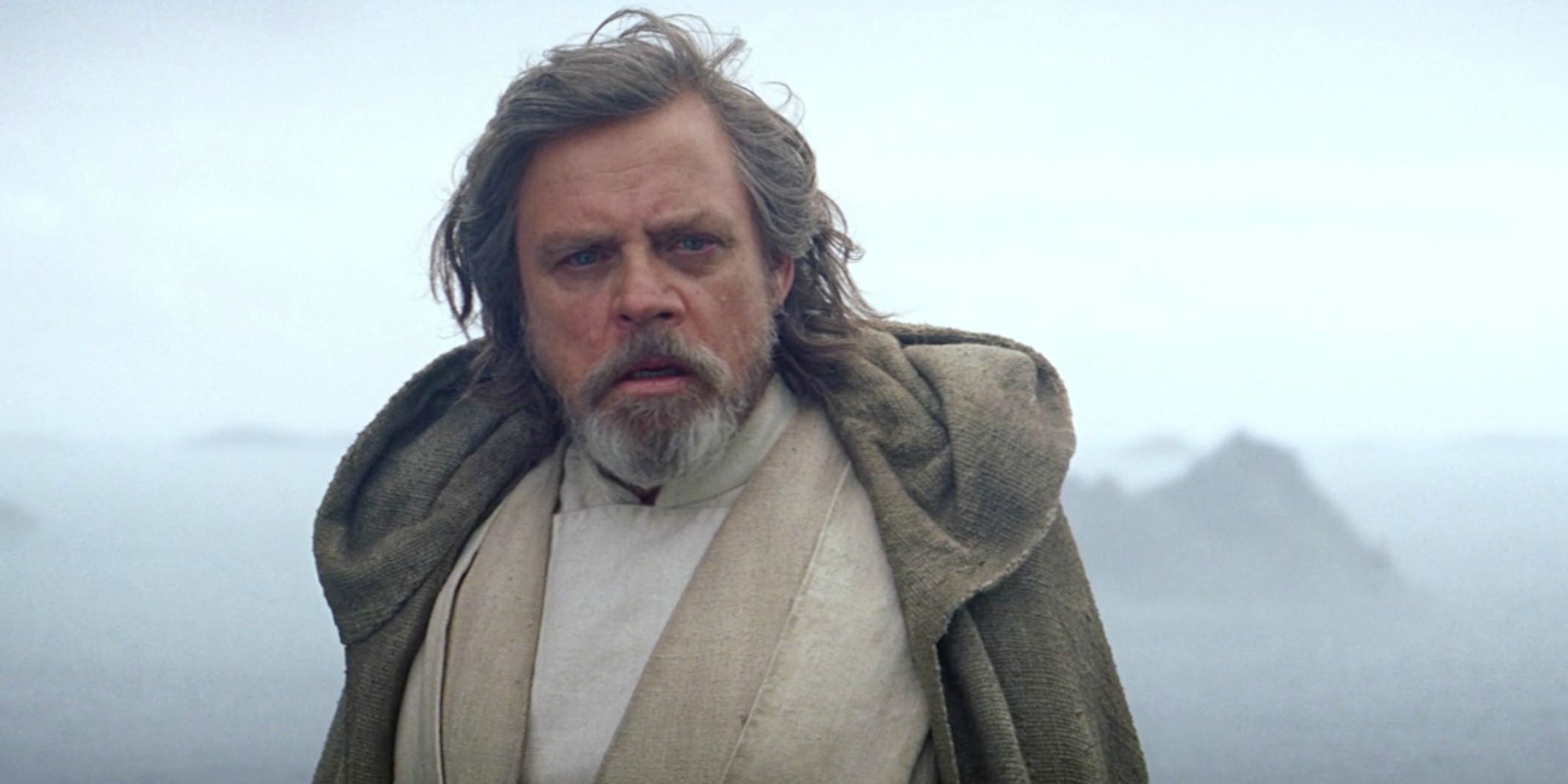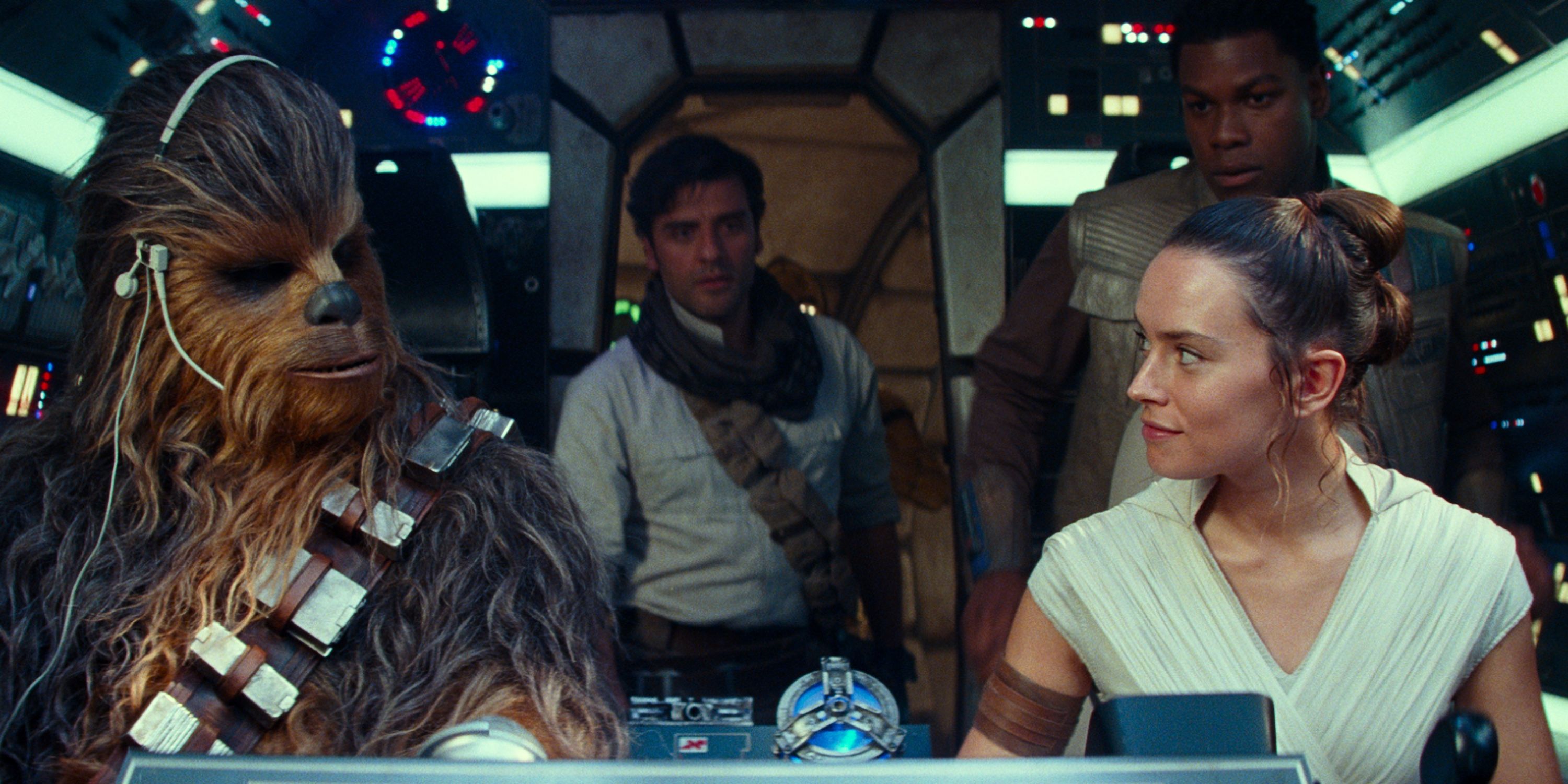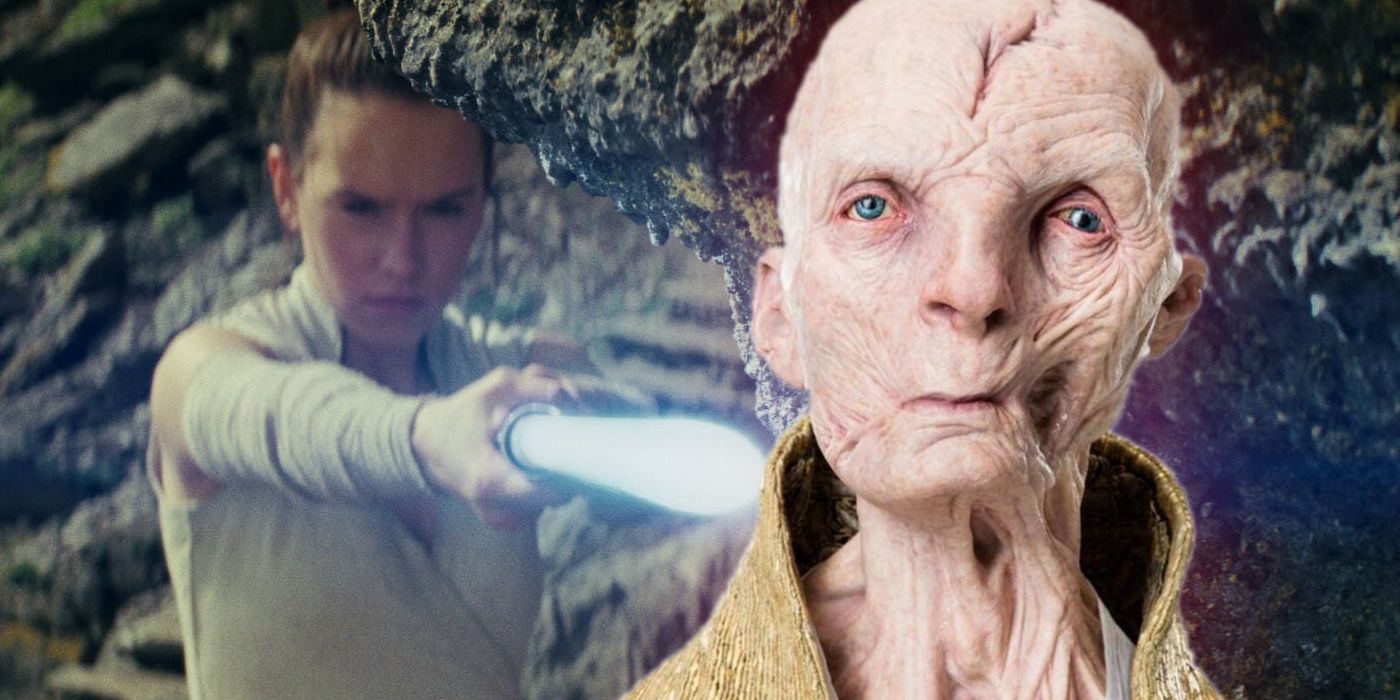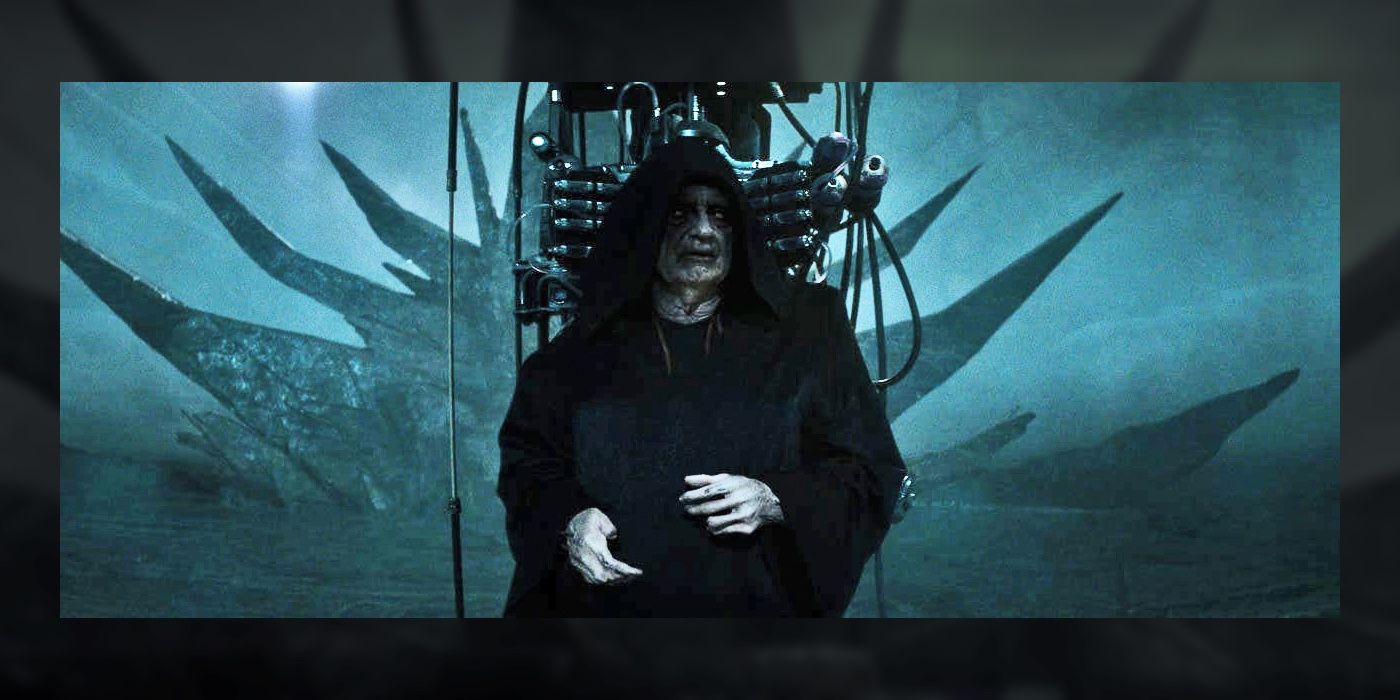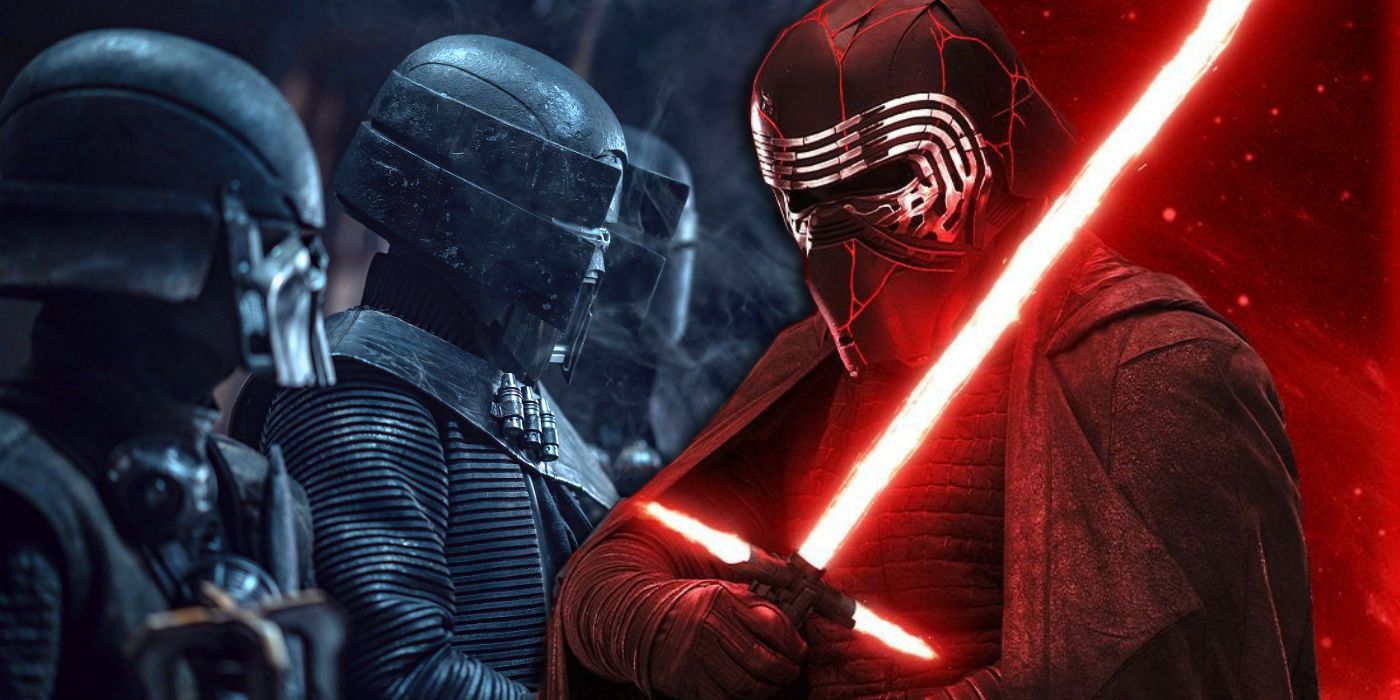J.J. Abrams is responsible for the biggest problems in the Star Wars sequel trilogy. When he signed on to helm the film that would become The Rise of Skywalker, Abrams became the first person other than George Lucas to direct multiple Star Wars movies. His first outing in the galaxy far, far away was 2015's The Force Awakens, so he obviously played a large hand (for better and for worse) in molding the trajectory of the sequel trilogy's narrative. While The Force Awakens was well-received (save for the critique it was too similar to A New Hope), The Rise of Skywalker earned decidedly mixed reviews and became the lowest-performing installment of the trilogy at the box office.
Despite the reactions to The Rise of Skywalker, Rian Johnson's The Last Jedi arguably remains the most divisive Star Wars movie of all-time. Arriving two years after The Force Awakens, the film proved to be extremely polarizing thanks to a series of bold creative choices that subverted expectations and attempted to help Star Wars grow. The Last Jedi's most vocal detractors claim Abrams and co-writer Chris Terrio were forced to "course-correct" on The Rise of Skywalker as they tried to fix some of the perceived problems with Last Jedi. But in actuality, the overarching issues present in the sequels can be traced back to Abrams.
It isn't just what Abrams and company did on The Rise of Skywalker (which was hit with criticism for retconning aspects from The Last Jedi). He unknowingly laid the foundation for the trilogy's more problematic elements with decisions he made during development of The Force Awakens.
Abrams Exiled Luke Skywalker On An Island
Originally, the Force Awakens creative team wanted to make Luke a bigger part of the narrative, but they felt he always overshadowed the new characters that were supposed to be the leads of the trilogy. So, they opted to have Luke disappear (after failing to start a new Jedi Order) and Skywalker was only in the film's final scene. This didn't sit well with some fans, who wanted to see Luke have a reunion with Han (before Solo's tragic death). The Last Jedi looked to flesh Luke's character out, which ended up being one of the most controversial parts of the entire movie. Longtime viewers couldn't believe the optimistic, idealistic hero of the original trilogy had become a jaded cynic, willing to spend the rest of his existence cut off from the universe.
Putting aside the fact time invariably changes people, Johnson didn't have much of a choice. Abrams was the one who put Luke in isolation, so it was up to Johnson to figure out why Skywalker was on Ahch-To. If Luke had immediately answered the Resistance's call and faced down the First Order with a laser sword, it would have made his exile extremely contrived. There needed to be weight and meaning behind Luke's decision to remove himself from the fight, so Johnson added more to the story between Luke and Ben Solo, using the youngster's turn to the dark side as the reasoning for Luke's state of mind. It provided the foundation for Luke's sequel trilogy arc, which still doesn't sit well with some viewers.
Abrams Split the Sequel Trilogy's Main Heroes Up First
In the build-up to The Rise of Skywalker, much was made about how the film would finally feature Rey, Finn, and Poe Dameron sharing significant screen time with each other. Whereas Luke, Han, and Leia developed relationships over the course of the original three films, this was the first time the sequels' trio of leads would be teamed up. Many consider this to be one of the new movies' biggest missed opportunities - with even the sequel trilogy cast bemoaning the fact they didn't work together very much on the films. But, considering how the events of The Force Awakens, it's hard to see what else the filmmakers could have done.
Abrams split up the main trio in the first act, when he separated Finn and Poe after the TIE fighter crash on Jakku. Rather than having Finn and Poe meet up with Rey, the scavenger only crossed paths with the former. By the time Finn and Poe reunited at the Resistance base on D'Qar, Rey had been taken prisoner by Kylo Ren. Then, of course, Rey found Luke in Force Awakens' final moments, meaning she'd have to spend a significant chunk of The Last Jedi on Ahch-To with her reluctant teacher (trying fruitlessly to convince him to pick up the sword). Because of that, she was away from Finn and Poe for a majority of the film, getting only a satisfying hug with Finn towards the very end. There wasn't a real opportunity there to have her go on an adventure with the other two and flesh out their dynamic. It's easy to point the finger at Last Jedi, but Force Awakens is the guilty party here.
Abrams Created Rey & Snoke As Mystery Boxes Without Answers
Anyone who's been following Abrams' career for any length of time knows he loves his mystery box. While there is an admirable quality to that, it can oftentimes get the director into trouble. "John Harrison" in Star Trek Into Darkness is perhaps the most infamous example, but there are also a few present in Star Wars. In particular, Rey's heritage and Supreme Leader Snoke's backstory were two plot points fans were theorizing about in the months leading up to The Force Awakens. The only problem was that film did little-to-nothing to provide any clear resolutions, leaving it up to Johnson to figure things out.
Granted, making things up as they go along is Star Wars tradition. The original trilogy was not set in stone when George Lucas sat down to make the first film. At the same time, it helps to have some semblance of a plan to stick to as a guideline. In retrospect, it feels like Abrams toyed with the idea of making Rey a Palpatine on The Force Awakens, but stuck too close to the mystery box mantra and didn't do anything to concretely set that up. Without a real course to follow, Johnson decided to make Rey's parents nameless nobodies, which was different from what Abrams had in mind. What ended up happening was The Last Jedi and The Rise of Skywalker were seemingly at odds with each other thanks to their mixed messaging about Rey's parentage. As for Snoke, what little of his history learned in the trilogy comes off as a throwaway line of dialogue in the third film, after the first two (starting with Force Awakens) failed to properly explain him.
Abrams Decided To Bring Palpatine Back (But Couldn't Explain How)
When the Rise of Skywalker teaser trailer surprisingly revealed Emperor Palpatine was back in the fold, Lucasfilm president Kathleen Kennedy was quick to state the villain's return was always part of the sequel trilogy's plan. The specifics behind the Emperor's resurrection were undetermined, they just knew Palpatine was the endgame. Considering what's been revealed about the original Star Wars 9, Colin Trevorrow's Duel of the Fates, that seems difficult to believe. Trevorrow's script did not include a role for Palpatine (who was just mentioned by name) and instead made Kylo Ren the primary villain. Considering Trevorrow was hired for Star Wars 9 in 2015, odds are he would have been privy to an impending Palpatine return and worked that into his screenplay.
By all accounts, Palpatine's comeback was Abrams' idea, but unfortunately the director didn't have much of an explanation as to how that happened. After some classic Star Wars opening crawl hand-waving (which mentions Palpatine's message broadcast to the galaxy - a plot point seen in Fortnite), the film proper only pays minimal lip service to Abrams' favorite prequel scene by having Palpatine repeat his famous line about the dark side and unnatural abilities. Sadly, Palpatine's role in The Rise of Skywalker is undercooked, with his connections to Rey and Kylo Ren coming across as half-baked at best. The idea of Palpatine's return is a logical one, as it makes him the singular thread that ties the three Star Wars trilogies together. Sadly, the Emperor's role in Rise of Skywalker is hamstrung from a lack of setup in the other installments, but this still could have worked if audiences learned more information about it. Instead, tie-in books were required to do the heavy-lifting as audiences were expected to accept a development that was random and sudden.
Abrams Underused The Knights of Ren (Twice)
The Force Awakens reveals Kylo is "master of the Knights of Ren," a group of villains who join the ever-growing ranks of underdeveloped Star Wars antagonists who are more memorable for their costumes than their onscreen actions. It'd be generous to say they have limited screen time, appearing in Force Awakens' Force flashback vision and a handful of moments in The Rise of Skywalker. Despite the hype surrounding their roles in Star Wars 9, the Knights of Ren barely registered as characters and frankly didn't have a whole lot to do. It was disappointing for those looking to see what the dark side warriors were capable of after hearing about them for years. Rise of Skywalker doesn't even bother to say where the Knights were in the previous installments.
On-paper, the Knights of Ren sound like a cool concept, they just aren't executed well in the films. Considering everything the sequel trilogy had on its plate, there arguably wasn't much time to dedicate to them. So, in hindsight, it's worth wondering what the point of even creating the Knights was if they weren't going to serve a meaningful role in the story. Within the context of the full trilogy, they come across as dead weight and the films wouldn't change much (if at all) if they were dropped entirely. That's unfortunate, seeing as there was potential here for something unique and interesting if it had been given the proper treatment from the beginning. The Knights are an afterthought in The Force Awakens, don't have a real place in The Last Jedi, and are just there in Rise of Skywalker.

